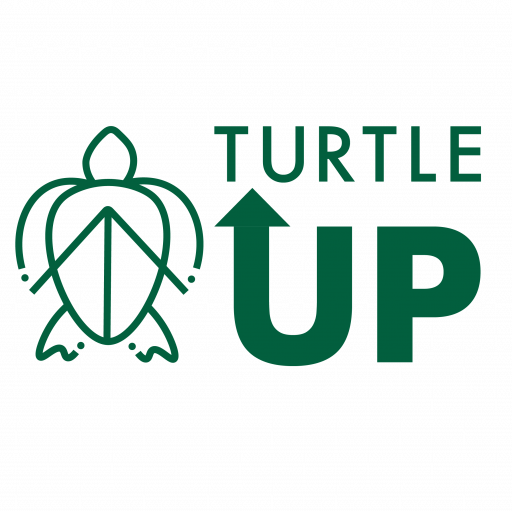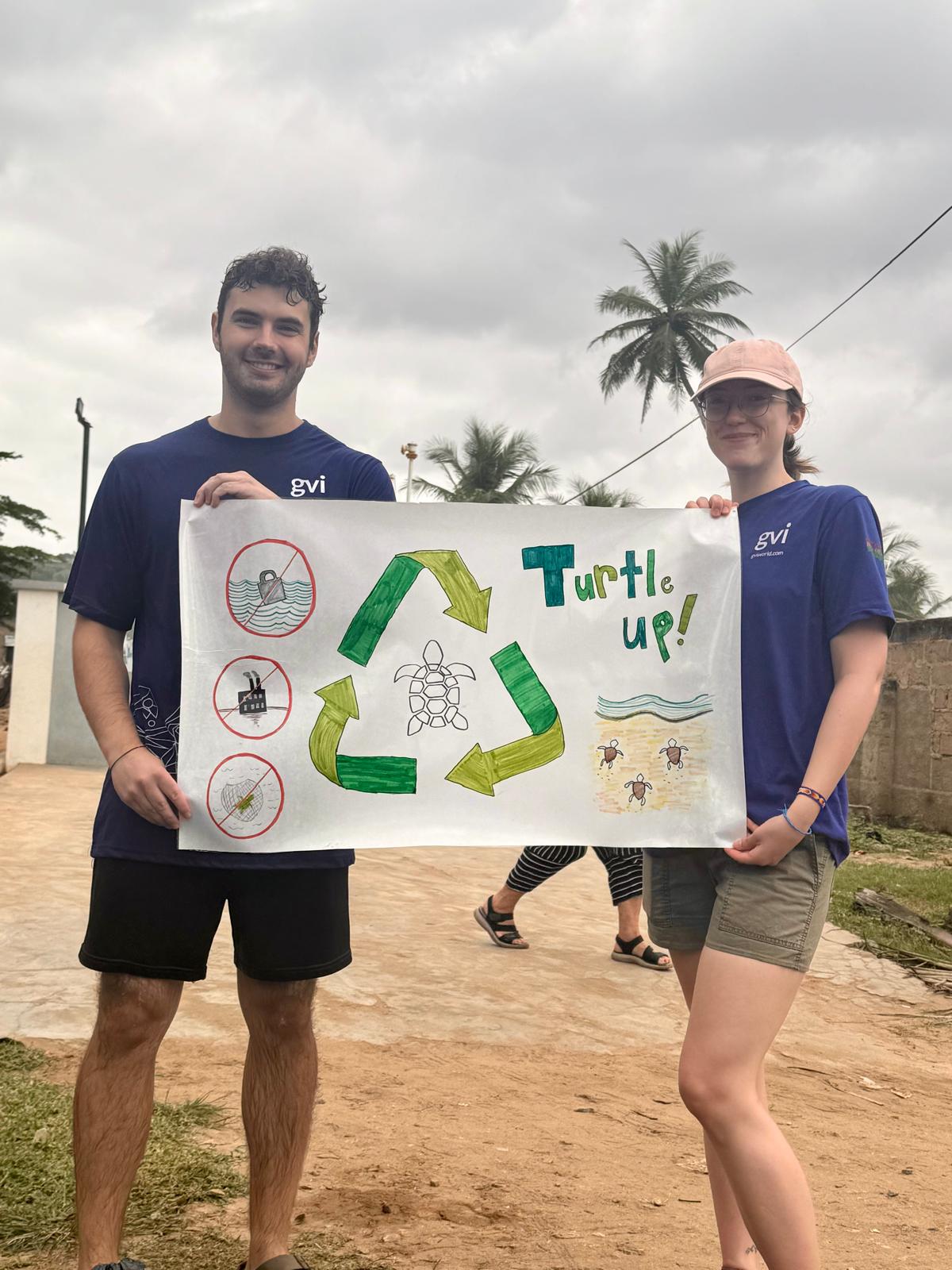
At Turtle Up, we believe the best way to become a sea turtle advocate is to experience their world—and the world of the people who live alongside them—firsthand. That’s why we created our eco-trips to Kokrobite, Ghana, immersive experiences designed for college students to connect with conservation on a human level. These trips aren’t just about protecting sea turtles; they’re about understanding the communities that share their shores, the systems that impact conservation efforts, and the role young people can play in building a more sustainable future.
Participants spend time engaging in meaningful projects like beach cleanups, school visits, and data collection with local turtle guides. They learn about sea turtle habitats and the real-world challenges of reducing plastic pollution and promoting environmental stewardship—while supporting the local economy and forming deep cultural connections.
When Eleanor Yates-McEwan signed up for Turtle Up’s eco-trip to Ghana, she knew she was stepping far outside her comfort zone—but that was exactly the point. With a deep curiosity about new cultures and a desire to do work that truly mattered, she joined the team in Kokrobite, Ghana, for what she hoped would be a transformational experience. What she discovered exceeded every expectation.
“I was curious about the culture and excited about the work,” Eleanor shared. “But knowing that the experience would be different from anything I had ever done before and would open my horizons to new ideas and aspirations convinced me to join.”
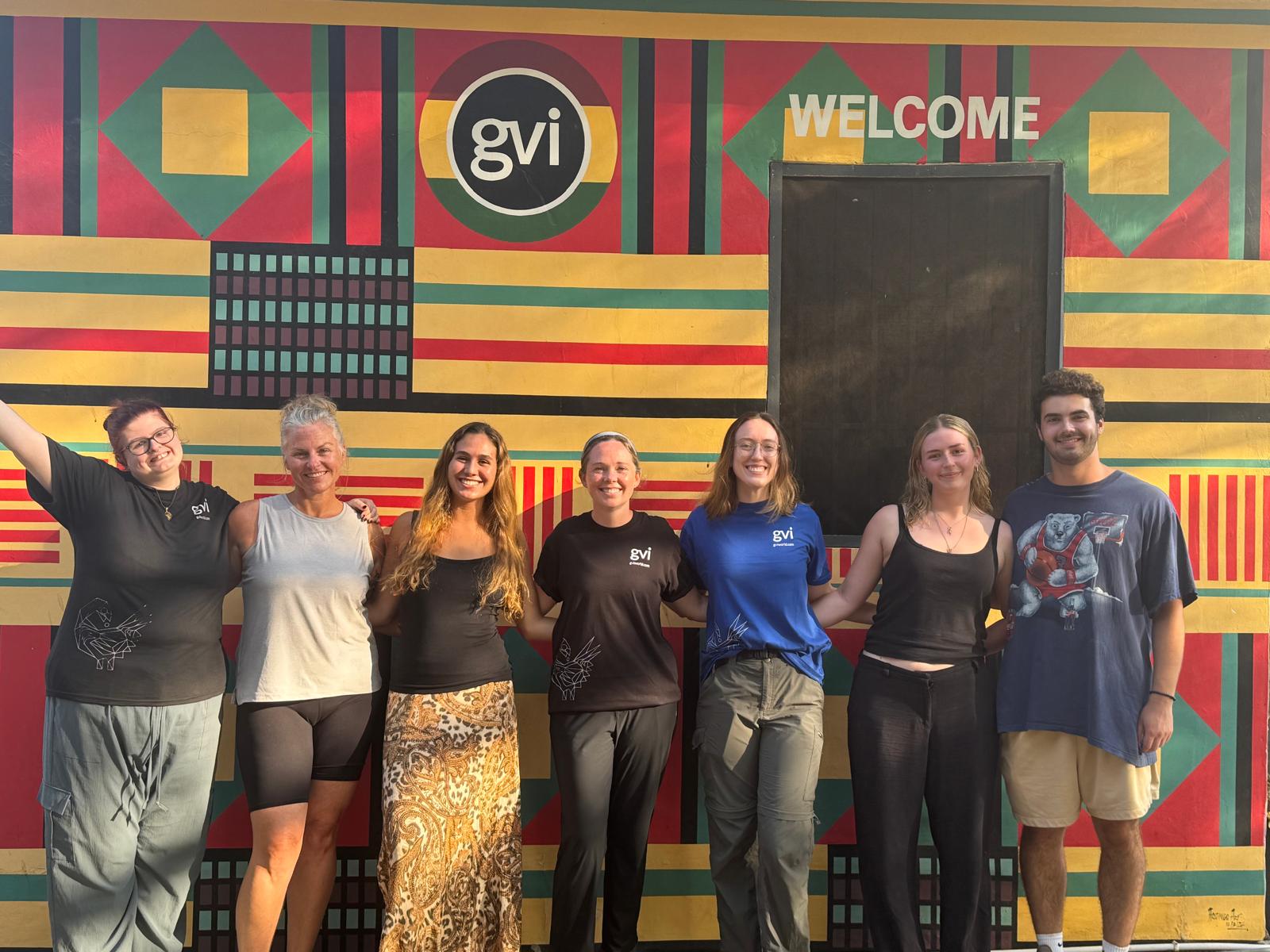
Turtle Up’s eco-trips are designed for college students who want to engage in meaningful conservation efforts while building genuine connections with local communities. Participants work with sea turtle guides, lead educational outreach in local schools, and support environmental cleanups, all while learning about the complex realities of conservation on the ground.
For Eleanor, this experience shifted how she thought about conservation altogether.
“This trip has challenged my ‘environment-first at all costs’ understanding of conservation,” she explained. “It showed me that conservation won’t function without compatible human systems. Projects won’t last unless they’re built into systems that can last—systems that change hearts, minds, and behaviors.”
Although Eleanor’s trip took place outside of turtle nesting season, she still had the chance to collaborate with the turtle guides, helping to streamline the data collection process and learning from their passion and expertise. Meanwhile, she gained valuable insight into the real threats facing sea turtles—especially the complexity of plastic pollution in coastal communities.
“Plastics are a major threat,” she said, “but developing sustainable waste disposal systems isn’t simple. There are global contributors to the issue that can’t be solved from the ground alone.”
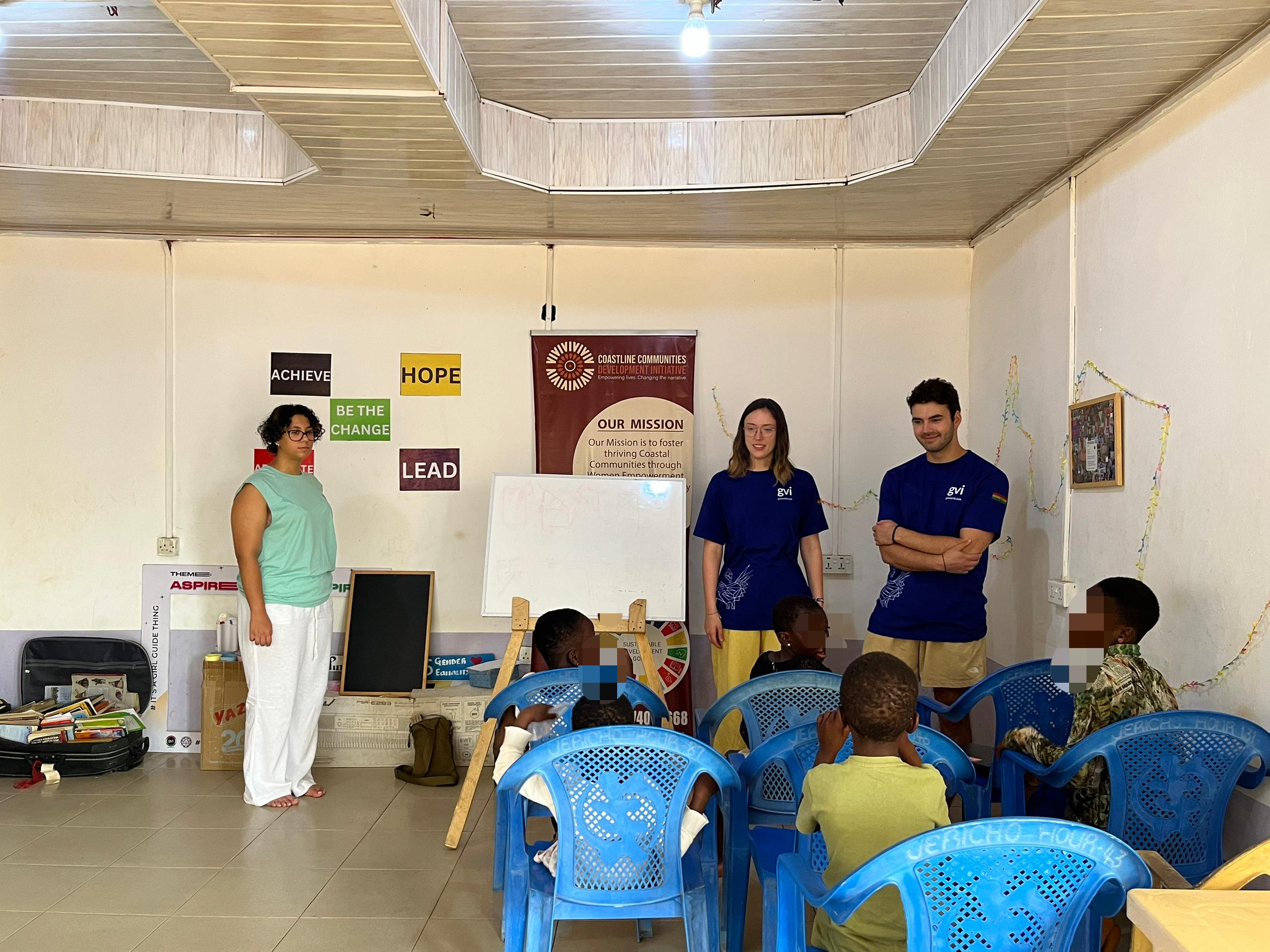
Still, Eleanor found that the heart of her experience lay in the local community, especially in the classrooms.
“School visits have been my favorite part,” she said. “The kids here are like kids anywhere—funny, silly, bright! I’m excited every day to go out on projects, talk about things I’m passionate about, and support the projects of fellow volunteers.”
She built strong bonds with the students and locals, often hearing “Madame Ellie!” as she walked through the village. The social connections made her feel at home, even in a place far from her own.
Some moments revealed important cultural differences that deepened her understanding of conservation education. For example, while discussing the dangers of plastic pollution, one student told her,
“Madame, if sea turtles eat plastic, then when we eat the turtles, we will be eating plastic.”
Eleanor was struck by the student’s insight. It was an unexpected but powerful lesson in biomagnification—and a reminder of how essential it is to teach conservation in ways that are relevant to people’s lived experiences.
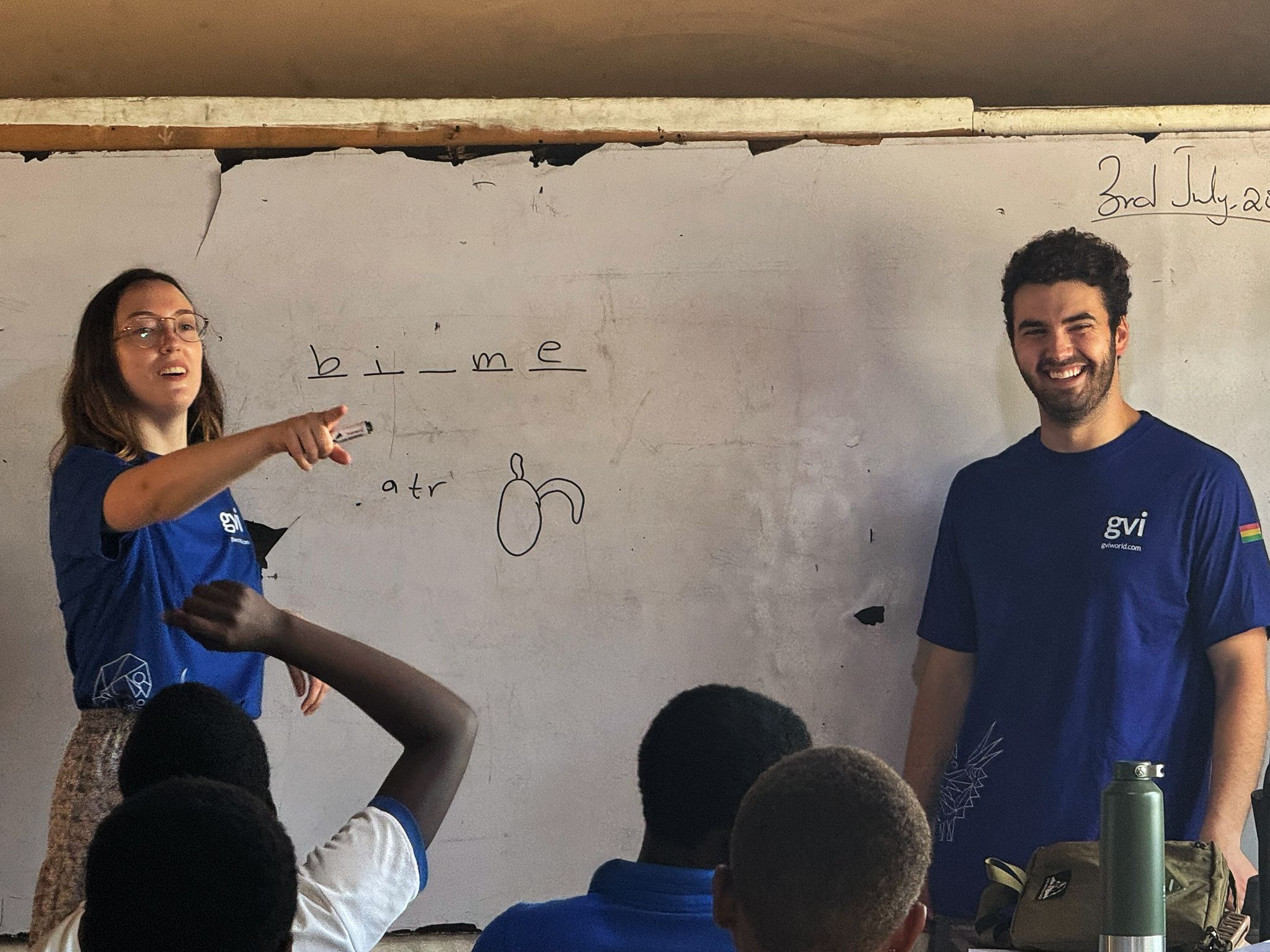
Along the way, Eleanor also learned a lot about herself. From gaining confidence and communication skills to embracing spontaneity and joy, the trip shaped her in unexpected ways.
“This experience has helped me see that I don’t want a sit-down 9 to 5 job yet,” she shared. “I want to travel, to see more of the world. I’ve been so happy and fulfilled doing this work—it’s given me permission to step back from the rat race and explore what I love.”
When asked to describe her experience in three words, Eleanor chose:
Clarifying. Perspective. Joy.
Looking ahead, she knows what will stay with her:
“I’ll remember the friends I made and how happy I’ve been. The work was transformative, and I hope I’ll be living out the goals I discovered here five years from now.”
Inspired by Eleanor’s story?
Turtle Up’s eco-trips offer more than just volunteer hours—they create space for growth, reflection, and lasting impact. Whether you’re passionate about sea turtles, sustainability, or simply want to be part of something bigger than yourself, this experience might just change your life too.
